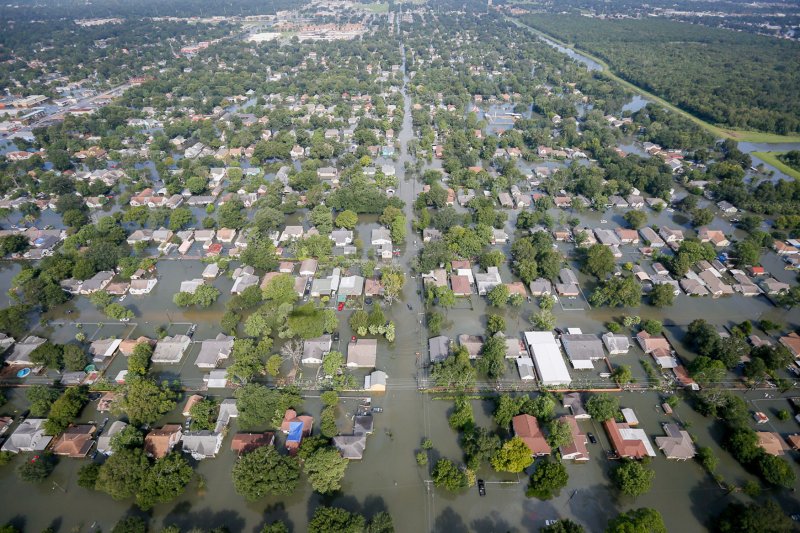The economic impact from Hurricane Harvey wasn't severe enough to derail long-term momentum, a federal reserve bank said. File photo by Staff Sgt. Daniel J. Martinez/Air National Guard/UPI |
License Photo
Dec. 22 (UPI) -- Hurricane Harvey caused around $70 billion in direct damage and 22,000 lost jobs, but didn't derail long-term economic momentum, a federal reserve bank said.
Hurricane Harvey hit the southern coast of Texas and the largest density of refineries on the southern Gulf Coast in late August. Port infrastructure in Corpus Christi, the fourth largest U.S. sea port by tonnage and the nation's largest crude oil export terminal, was damaged severely by Harvey and Hurricane Nate this summer.
A fourth quarter survey from the Federal Reserve Bank of Dallas said it was assumed that Harvey caused $70 billion in direct damage and left around 22,000 people without a job.
In October, Oil States International, which has headquarters in Houston and operates five manufacturing facilities there, said one of those facilities was out of service after heavy flooding. It reported a net loss for the third quarter of $15 million, about 28 percent more than the same period last year
Encana Corp., a U.S. shale oil and gas company, said Harvey sidelined about 3,500 barrels of oil equivalent per day from the Eagle Ford and Permian basin.
A report from Goldman Sachs, meanwhile, found that flooding from Hurricane Harvey was the greatest threat to energy infrastructure in the region. As much as five feet of rain were forecast for some of the areas in Harvey's path.
The Dallas Fed said, however, the impact from Harvey was short-lived and most of the region's jobs would return quickly.
"In short, a host of leading indicators suggest that Hurricane Harvey, while devastating to many homeowners and small businesses, likely caused only one month of net job losses in Houston," the report from Dallas Fed economist Jesse Thompson read. "Despite slower growth in the second half of 2017, the region's long-run economic momentum is unlikely to be derailed."
Little actual oil is produced in the greater Houston metropolitan area, though it's considered the U.S. energy capital. The Dallas Fed said it holds that title "despite diversification and deepening connections to the broader U.S. economy over the past 30 years."
For the economy in general, the bank said job growth is the most volatile when measured against eight of the largest U.S. metropolitan areas from 1990-2016.
"Oil prices are responsible for much of Houston's volatility," Thompson's report, published Thursday, read.















